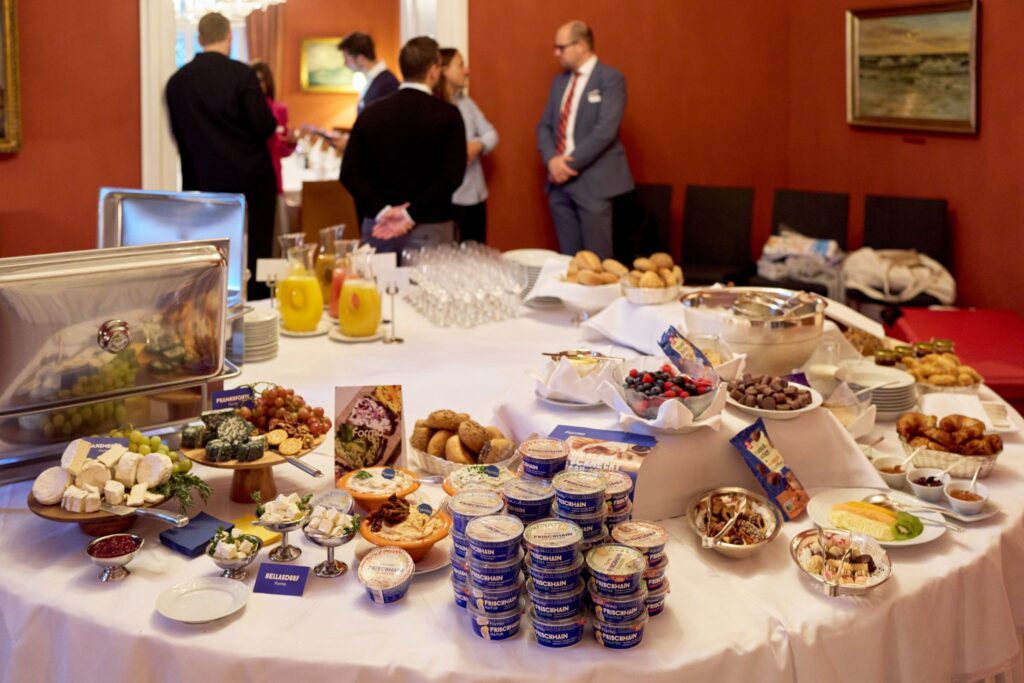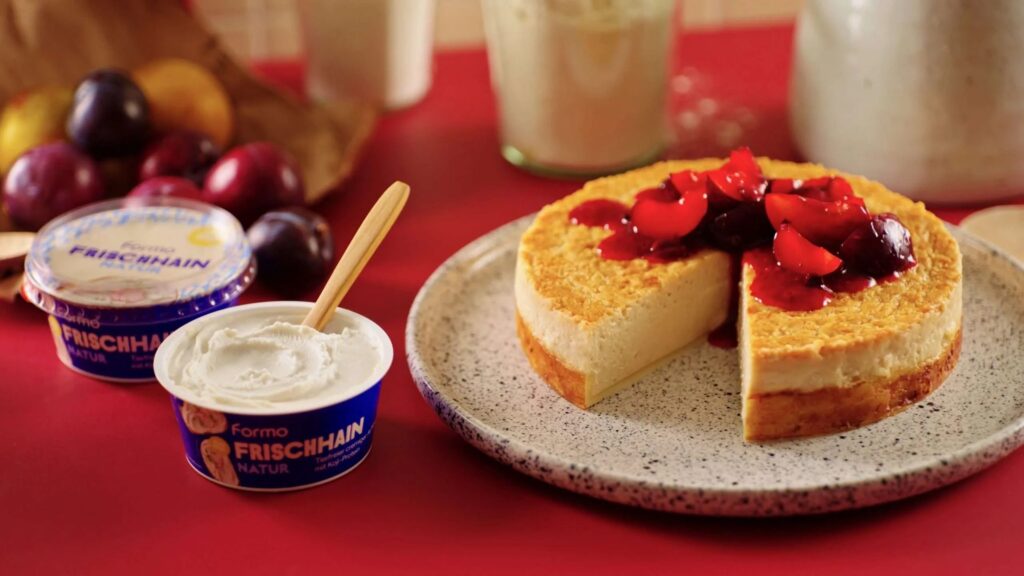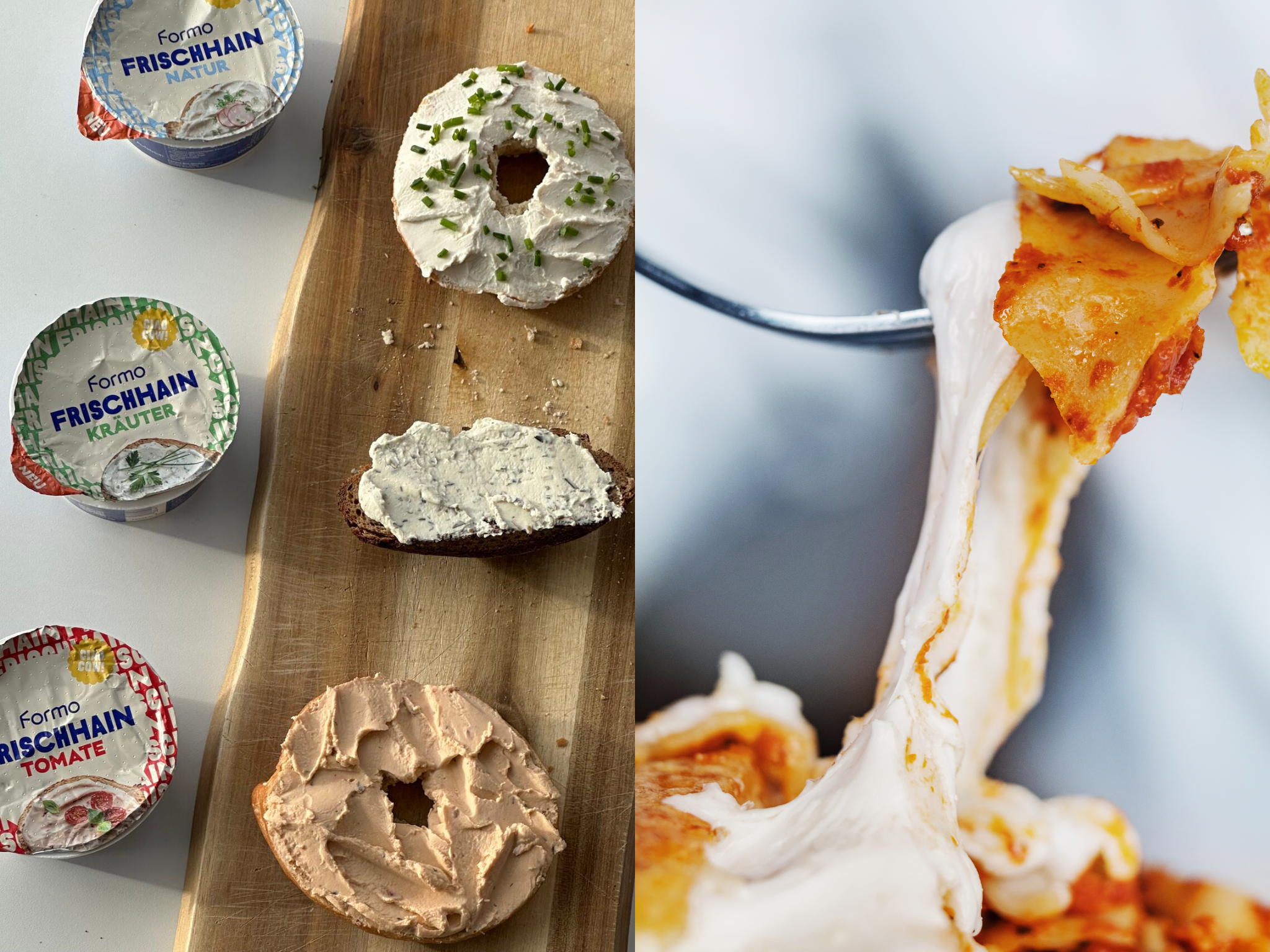6 Mins Read
German fermentation specialist Formo has received €35M in venture debt from the EU’s lending arm to scale up its dairy and egg alternatives and pursue regulatory approval for its animal-free casein protein.
Four months after it raised one of 2024’s largest funding rounds for alternative protein, Germany’s Formo has received another €35M ($35.8M) in a quasi-equity venture debt loan from the European Investment Bank (EIB), the EU’s lending institution.
The startup will use the funds to scale up manufacturing of its koji protein cheeses (which were launched in September), develop new products through its micro fermentation platform, and secure regulatory clearance for its precision-fermented casein in the US and the EU.
Formo is currently undergoing the regulatory process for its recombinant casein protein in the US, and expects to complete GRAS (Generally Recognized as Safe) determination by the end of 2025, sustainability and public affairs director Christian Poppe tells Green Queen.
While there’s no timeline yet for the firm’s home market, he reveals: “We’re actively working on developing a comprehensive novel food dossier for the EU. However, we are not rushing the process, as our commercial operations with Micro Fermentation allow us to proceed diligently and thoroughly.”
EU support a nod to Formo’s ‘strength and scalability’

The EIB loan is supported by the InvestEU scheme, which provides the EU with long-term funding by leveraging substantial private and public funds. It’s set to unlock €372B ($381.4M) of additional investment in new technologies by 2027.
It takes the company’s total financing past €135M ($138.4M), following the $61M Series B round Formo closed in September. That was the third largest raise by an alternative protein startup last year, banking on investors’ growing appetite for fermentation tech, despite an overall downturn in funding for the sector.
In the first three quarters of 2024, fermentation-derived protein companies raised nearly 30% more than they did in all of 2023. But collectively, alternative protein startups (which also include plant-based and cultivated protein producers) raised $700M less in this period than they did in all of 2023.
“Developing and scaling up the industrial production of fermentation-based foods is a highly innovative approach to meeting the growing demand for protein-rich dairy and egg substitutes that are free from animal products,” said EIB VP Nicola Beer. “By working with Formo, the EIB is supporting innovative solutions for sustainable consumption while also backing a growth-stage European startup.”
It’s a nod to the EU’s continued efforts to shift towards a more sustainable food system. Since 2020, the region has pumped €252M into future food research, half of which came in 2023 and early 2024. And this doesn’t include the European Innovation Council’s €50M investment in precision-fermented and algae-based foods.
Its accelerator programme, EIT Food, has backed a number of startups in the space over the years. And EIB itself has provided a €20M ($22.2M) loan to Denmark’s Matr Foods to open a mycelium protein factory, while participating in Dutch cultivated meat player Mosa Meat’s €40M ($42.4M) raise last year.
The EU’s support for future food is in sharp contrast with the US, where public funding in the sector has been largely lacking amid highly influential lobbying efforts. While the Department of Defense doled out several seven-digit grants to precision fermentation startups last year, it also revoked a call for funding applications to develop cultivated meat for military rations, following intense pressure from livestock groups and Congress members.
Formo CEO Raffael Wohlgensinger, who co-founded the startup with Roman Plewka in 2019, was happy that the EIB was “confident of the strength and scalability of our innovation”.
“We want to show that innovative European companies can move from smart ideas to scaling up and successfully marketing their technologies,” he said. “We also know that fermentation processes will make a decisive contribution to the resilience of the European food system. This financing sends a strong signal across Europe and confirms our strategy.”
Formo working on koji-based egg and baked goods

Formo is working simultaneously on micro and precision fermentation. The former process, which it describes as advanced and different than traditional fermentation, involves producing a specific compound – like protein – through naturally occurring microbes.
Formo uses a strain called Aspergillus oryzae, a type of koji mould that forms the base of common food and beverage products, like miso, mirin and sake. It begins by cultivating the koji mould in steel tanks, where the microbes grow in a “nutrient-rich bath” containing sugars and micronutrients, as well as wheat flour or other carbohydrates.
As they feed on these nutrients, the koji strains produce protein. Once the fermentation is complete, Formo separates the biomass from the liquid (which contains the protein). This liquid is then dehydrated using spray dryers to create a fine protein powder.
The starup then collaborates with family-owned cheesemakers, who use traditional techniques like coagulation and ageing to create the end products.
In September, it rolled out cream cheese alternative Frischhain at more than 2,000 Rewe, Billa and Metro stores in Germany and Austria. “The launch of our cheeses has been met with great consumer reception, and we’ve received lots of positive feedback. We are learning a lot from this process and are incredibly grateful for the support and enthusiasm so far,” Poppe says.
“We plan to launch Camembritz [a Camembert replica] later this year, and there are additional products in the pipeline,” he adds. These include Frankoforte and Hellasdorf – koji-based versions of blue and feta cheeses, respectively.
Now, Formo has revealed that it’s also scaling up fungi-derived scrambled eggs and baked goods, although details about these lines are under wraps.
Precision fermentation casein remains a priority

These innovations are a precursor to Formo’s second-generation products, for which it uses precision fermentation. This is a genetic engineering process where a specific molecular sequence is inserted into a microorganism to give it instructions to produce the desired molecule via fermentation.
Ingredients made this way are considered novel foods and require regulatory assessments before they’re allowed to be sold on the market. The Berlin-based startup is working on casein – the main protein found in dairy, and one that’s responsible for the melty and stretch property of hard cheeses – as well as an egg alternative through the precision fermentation platform.”
“Right now, our strongest focus remains on cheese. We are prioritising its market launch, which will come before other products like the precision fermentation egg alternative,” says Poppe, adding that the company isn’t committing to a timeline for the latter yet.
To advance its casein production efforts, it partnered with fellow European animal-free casein maker Those Vegan Cowboys to unite R&D operations across strain engineering, bioprocessing and large-scale production to reduce costs, break through regulatory hurdles, and accelerate each company’s path to market entry.
“Our partnership with Those Vegan Cowboys remains as strong as ever. Together, we’re making significant strides in scaling up bioidentical casein production through large-scale fermentation runs,” says Poppe.
“We’ve been optimising titers, as well as upstream and downstream processing, and the cooperation has been highly fruitful. We value this collaboration greatly.”



